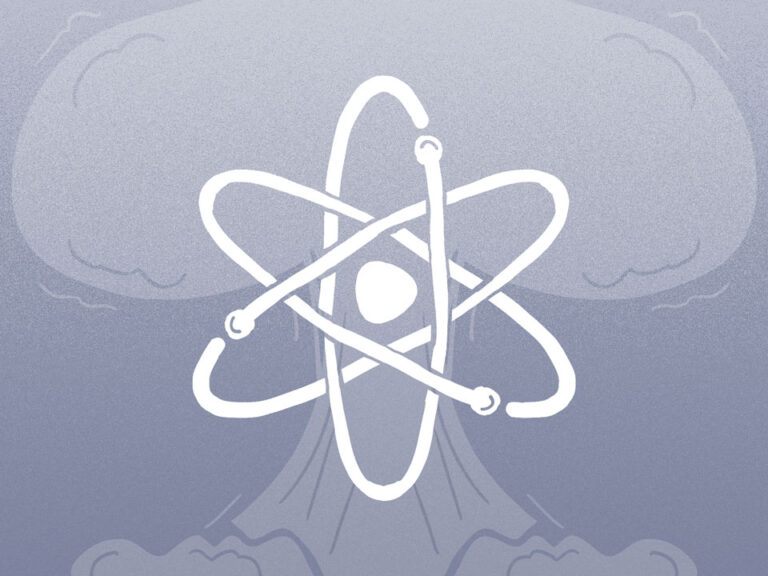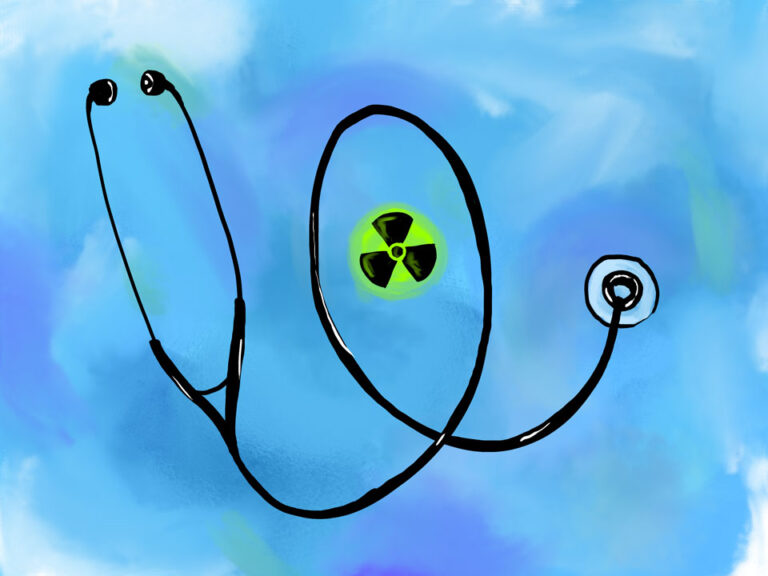The Fukushima Daiichi nuclear accident: 10 years later
Cancer History Project editorial board member Robert Peter Gale shares his perspective on the Fukushima Daiichi nuclear accident, marking the 10th anniversary of the disaster. Gale’s original piece from April 1, 2011, is available here, and his series of reviews of Chernobyl, the HBO miniseries, is available here.


On the early morning of March 11, 2011, I was on an elliptical trainer in the health club of my Paris hotel watching CNN when I saw live coverage of a powerful earthquake in Japan.
A slow-moving wave about 1 m high came sweeping up a river, overspilled the embankments and inundated the land. People were running to climb a highway overpass whilst cars swept by like toys.
The 9.0 Richter scale earthquake about 70 km off the northern Tohoku coast of Honshu, the main Japan island, triggered a tsunami with 40 m tall waves—a 12-story building—reaching 9 km inland. My concern at the time was for my colleagues at Tsukuba University about 300 km south of Sendai.
Although I knew of the Fukushima Daiichi nuclear facility on the coast near the epicentre, I was not terribly worried.
Japanese nuclear facilities, like those in the U.S., have redundant electricity power sources to keep the pumps, which circulate water to cool the nuclear core running: (1) electricity generated by the facility; (2) electricity from the regional electrical grid; and (3) auxiliary diesel engine generators. It was difficult to imagine simultaneous failure of all 3 electrical sources but this is what happened.
A few hours later, much to my amazement, I saw live TV footage of hydrogen explosions unroofing several of the containment buildings at the Fukushima Daiichi nuclear power facility.
The reactor auto-shutdowns stopped internal electricity generation, widespread damage knocked out the Tohoku regional electricity grid and, as a coup de grâce, a 15 m tsunami wave overwhelmed the protective sea wall and flooded the diesel generators, wiping out a last chance to cool the reactors. I had a flashback to my experience at the Chernobyl nuclear power facility, 25 years earlier.
Quote of the week
The global confusion and hysteria over these accidents makes it clear that policymakers and the public be educated on what radiation from an accident at a nuclear power station can—and, more importantly, cannot—do.
Robert Peter Gale
Guest Editorial: Chernobyl Doctor’s Notes From Fukushima
The Cancer Letter| April 1, 2011
Recent contributions:
Patient care
Learning From Disaster: Patient Safety and the Role of Oncology Nurses
By Oncology Nursing Society | March 15, 2021
Who was Dr. Roswell Park?
By Roswell Park Comprehensive Cancer Center | March 15, 2021
Primary source: 1984 Internal Medicine News item on antiemetic therapy before chemotherapy
By Johns Hopkins Kimmel Cancer Center | March 15, 2021
The State of Cancer Care in America 2014: A Report by the American Society of Clinical Oncology
By ASCO | March 15, 2021
The State of Cancer Care in America 2015: A Report by the American Society of Clinical Oncology
By ASCO | March 15, 2021
The State of Cancer Care in America 2016: A Report by the American Society of Clinical Oncology
By ASCO | March 15, 2021
The State of Cancer Care in America 2017: A Report by the American Society of Clinical Oncology
By ASCO | March 15, 2021
Funding
Bill Hall: A driving force in the Kansas City community
By The University of Kansas Cancer Center | March 17, 2021
Video: Triangle tax transforms clinical research
By The University of Kansas Cancer Center | March 18, 2021
Primary Source: State Funds Sought For Hopkins Cancer Center
By Johns Hopkins Kimmel Cancer Center | March 19, 2021
Oral history
Trailer: Jim Allison: Breakthrough (Feature Film)
By Jim Allison: Breakthrough | March 15, 2021
NCI Oral History Project Interview with Nathaniel Berlin, M.D.
By NCI | March 15, 2021
NCI Oral History Project interview with Carl G. Baker, M.D.
By NCI | March 16, 2021
NCI Oral History Project Interview with John L. Ziegler, M.D.
By NCI | March 17, 2021
This column features the latest posts to the Cancer History Project by our growing list of contributors.
The Cancer History Project is a free, web-based, collaborative resource intended to mark the 50th anniversary of the National Cancer Act and designed to continue in perpetuity. The objective is to assemble a robust collection of historical documents and make them freely available.
Access to the Cancer History Project is open to the public at CancerHistoryProject.com. You can also follow us on Twitter at @CancerHistProj.
Is your institution a contributor to the Cancer History Project? Eligible institutions include cancer centers, advocacy groups, professional societies, pharmaceutical companies, and key organizations in oncology.
To apply to become a contributor, please contact admin@cancerhistoryproject.com.











